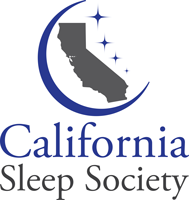By: Jonathan Sherrill, RPSGT, RST
Greetings fellow sleep professionals,
With so many changes happening in the community of sleep, I would not be surprised if we set a new attendance for our annual conference, October 6-7, 2023, in San Diego, California.
Community: A group of people living in the same place or having a particular characteristic in common. A feeling of fellowship with others, as a result of sharing common attitudes, interests and goals.
We are a community of sleep professionals, but at times it does not feel like we have common attitudes, interests, and goals. What impacts are you experiencing in your sleep labs? Do you feel these are unique to you, or do you think that others in the same space are having these challenges too? What can we do together to solve them.
I started consulting after my career abruptly ended, after the closure of the large chain of diagnostic sleep labs that I ran for the past 20 years. From the countless number of interactions and interviews that I’ve had with sleep lab owners, doctors, medical directors, sleep lab managers, lead techs, sleep techs, front office and administrative staff, I can tell you firsthand, that the problems you are facing in your sleep labs are not isolated to your sleep center. What can we do as a community to create a pragmatic approach to solving them?
- Not enough qualified and credentialed sleep techs
- Operating costs are too high
- Regulatory requirements
- Accreditation requirements
- Fraud, waste, and abuse
- Wage discrepancies
- Operational concerns
- Limited time to address all job duties
- Limited resources to address all job duties
- Limited skill to perform all job duties
- Imposter syndrome
- Concerns over AI and other smart technologies
- Automated scoring without human oversight
- Worry and stress about their future
- Licensing and credentialing requirements
- Encroachment of profession by unlicensed and unqualified techs
- Patient difficulty
- Increased patient health concerns
- Equipment functionality
- Job specific training
- Core competencies measurements
- Performance Improvement
- Calibration issues
- Supply issues
- Therapeutic issues
- Ratios
- Understanding of new technologies
- Training for new technologies
Running a sleep lab can be hard and it is no longer as lucrative as it once was. My fear is that as concerns continue to mount across our industry, more labs will look for creative ways to save costs. But at what cost?
A baby died during a sleep study as technicians were troubleshooting equipment. While I was not there, and do not know what did or didn’t happen, I know this resulted in: a baby who is no longer alive; Parents who no longer have their child; and investigation one of the most prominent children’s hospitals in the United States, and a lawsuit resulting in a payout of over $15 million.
As a father, I am unable to process what this type of loss would feel like and send my genuine thoughts, prayers, and condolences to the Kekula Family. As a member of our sleep community who is passionate about our profession, I never want something like this to happen again. Unrelated to this case, I can only imagine the field day a lawyer would have during a tragic event if proper techs hadn’t been used, if there was a documented history of unaddressed equipment issues in the lab, or if there was any deviation outside of regulatory, accreditation, or the policy and procedures of the company.
I don’t claim to have all the answers, but I think as a community of sleep professionals, we can work towards finding them. I look forward to seeing you all, October 6-7, 2023, in San Diego.

